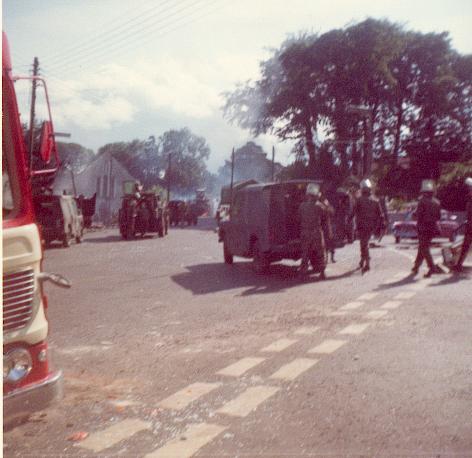The recent High Court action brought by the Police Federation on behalf of thousands of RUC officers against their Chief Constable – alleging failure of a duty of care by not providing adequate counselling to traumatised police during the recent Troubles – spurred the following offering from the wife of a recently-retired Ambulance Worker from Newry.
‘My husband worked for decades in the Ambulance Service attached to our local hospital. As often as not, they were called to scenes of the most recent atrocity even before the police. At the height of the Troubles, these workers would often be recalled to work without notice, even on their day of rest or from holidays. I remember that for most of our young married life, my husband was absent from home working overtime during these Troubles.
When, much belatedly, some minor accolade was offered and an article and photo appeared in the local press, it was the current crop of Ambulance Workers – and not those who was laboured and suffered through the atrocities – to be honoured!
Some incidents stand out. Doyle’s pub in Camlough (the Lockin) was blown up by the UVF on a Saturday night in January 1976 and the Ambulance Men were called out to that incident. The very next night the Reavey family of Whitecross was mown down in their own home. Two died instantly and a third from his injuries some weeks later. My husband and others of the Service had known them personally. The upset and stress did not easily go away. There was no counselling service for these Emergency Workers. Indeed they had to turn out for work as usual for their next shift.
And in any case these valiant men and women were catapulted into the role of ‘Emergency Service Workers’ – but they had been employed as peacetime civilian service workers. In essence that is what they remained and were so rewarded and treated. But it suited the authorities to throw this extra burden upon their shoulders.
And what a burden that turned out to be on just the following day! A minibus filled with workers was attacked and ten men died at Kingsmills. To the Ambulance Man each victim was equally innocent – but they too, who had to attend the injured and collect the dead, were innocent victims.
It was not always the largest, the most ‘spectacular’ terrorist incident that caused the greatest trauma to the Emergency Workers. But often it was, like the Narrow Water bombing on the same day that Lord Mountbatten was killed in Mayo.
It was pitiable to observe the panic and trauma of the soldiers and others early on the scene as the Ambulance Men arrived. They were the ones most in need of medical aid – for the bombing victims were almost all deceased. The Ambulance Men however were given the task of recovering the severed limbs and other body parts of the dead victims.
Perhaps the greatest irony was their inability later to share this terrible experience with friends and acquaintances – perhaps the first step towards recovery for a trauma victim – for fear of disfavour or even retaliation for having attended dead or dying soldiers. Indeed on that fateful day the Ambulance Service was on hand when a second deadly attack followed the first at the same location, putting their lives at risk from combatants of both sides.
…. More to follow ….
